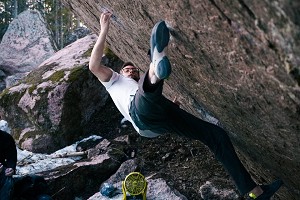
Pete Kirton sadly passed away last week at the age of 57. Whilst his name may not be familiar with many, his contribution to British rock climbing was immeasurable. Pete was one of the first climbers in the country to pursue bouldering for the sake of bouldering. He influenced many by developing problems in Northumberland, The Peak District and spent some time developing the Bowderstone with Jerry Moffatt. Tales of his strength echo down from that generation, along with his wry sense of humour and humility. In this article, Andy Pollitt and Andy Reeve remember Pete from two very different parts of his life; his time as a climber in Sheffield and his time as a mental health nurse.
Andy Pollit remembers Pete from their days living together on Hunter House Road, Sheffield:
Awful news, simply awful.
The week was going badly enough already and after yet another sleepless night I awoke to find three emails advising Pete was in an induced coma having been discovered at 6.15 AM unconscious but still sort of alive, somewhere near his house in Sheffield. Massive head trauma by all accounts. I said what turned out to be a fruitless prayer for him and within hours more emails arrived from Sheffield advising he'd sadly passed away.
Ahh no Lord, why?
Echoes of another old mate Ed Wood who was discovered stone dead on a park bench one frosty morning over a decade earlier – Sheffield again.

Pete was a boulderer par excellence see, before bouldering was even recognised as a discipline in itself, 'cept for the French at Font and maybe John Gill earlier over the pond of course.
Yeah, Pete could out-hang Jerry and chuck one-armers all day long but couldn't compete with 'The Super Brat' traversing back and forth across the tiny Broomgrove wall crimpers. Horses for courses?
Am slightly hazy on chronology but think Pete moved in to 'my' place to take over Basher's room when he moved out. Zippy took Jerry's room and John 'Spider' McKenzie took over Chris Gore's.
Pete was applying for jobs in mental health at the time and I used to rib him mercilessly that if he turned up on a psych ward with his thick black-rimmed spectacles – the ones with the sticky tape over the bridge, tweed jacket and 'funny' Geordie accent [we were in Sheffield, Yorkshire], the nurses would surely have ushered him in to the nearest padded cell with a "yes Peter, you really are our latest new clinical psychologist now in you go" and bolted the door.
It goes without saying that no-one at the time could match Pete for pure, unadulterated power [Tim was very, very close], but Pete was loathe to go more than ten feet off the ground. Somewhere [must check diaries] we actually did a proper two pitch route together and Pete was so far out of his comfort zone it wasn't funny.
Pete was funny though. And highly intelligent, savvy and smart.
I'd throw him Guardian cryptic crossword clues and he'd shoot back an answer quick as a flash then lean back and chortle. Once he'd repeated it - s l o w l y and in proper, understandable English it reminded me just how knowledgeable and sharp as a tack he was. We'd often play Scrabble with Zippy and Nick Plishko too and had the official Scrabble dictionary on hand, yet despite calling Pete out on numerous bizarre words he was never, ever wrong. He even knew the precise meanings!
Peter Kirton is, was, and shall forever remain a dear, dear comedian, 'brain box', stronger than any of us but particularly a truly great friend.
In due deference, I think it appropriate to raise a glass in toast to his memory - and legacy, and offer sincerest condolences to his loved ones at this moment.
May God bless Pete and give him eternal solace in peace as he parties on 'up there' with Noddy, Paul Williams, Derek Hersey and our other mutual friends who were also taken too soon.

Andy Reeve worked with Pete for several years on a Mental Health Ward in Sheffield. Here he remembers Pete's skill in his profession and humility in the face of questioning...
I had a lot to learn when I started working as a newly qualified Nurse on a mental health ward, aged 22 and still green to the world. One of the first things I noticed in this new environment was the power that different members of staff exerted on the ward milieu, which could fluctuate from relative tranquillity one day, to hectic and wrought the next. With his gruff exterior it was not immediately obvious to me how Pete managed to foster a feeling of calmness and safety amongst the chaos. But the gruff exterior was just that – his warmth and humour easily penetrating the surface. The first time I felt this was when he referred to me as a 'bastard' – not a term of affection I was accustomed to being used in the workplace – especially not in front of our manager. You see, he certainly was brash, but paradoxically, this was delivered with such familiarity and camaraderie that it was more akin to a kind of rite of passage than anything else.
I recognised Pete's name from my obsessive reading of climbing guides, and I had a vague awareness that he had been pretty handy in his day. Stood beside him whilst he rolled a cigarette, I asked about his climbing. Laughing, he told me in no uncertain terms that he had never been any good, and anyway he had given it up these days. He continued the conversation as he did all talk of climbing: by denigrating his own achievements. Pete was a natural story-teller, using his wit to captivate, followed by his self-deprecating humour to conclude, invariably with him failing to get off the ground, or some other such unlikely ending.
The closest he got to boasting was when he told me that he undoubtedly held the record for the highest anyone had ever failed on Reticent Mass Murderer (E4 6b) at Cratcliffe. This was no brag: he had done the crux and had both hands over the top of the crag, but with the gear at his feet he had been overtaken by fear. The only course of action he dared take was to jump off! Despite his best efforts to downplay his own ability, I knew how strong he had been, the vivacity and power still evident in the way he spoke about movement over rock. That desire to pull powerfully still evident as his fingers ran over the edge of the door frame, crimping hard even as we spoke. It would provide some satisfaction to Pete to know that despite my quiet confidence that I could see through his humility, it's only in the last few days that I have learnt that what he told me of his abysmal technique was a lie as well – it seems he fooled me into believing that he was "too bone idle to use my feet". Pete was much more comfortable when he was taking vicarious pleasure in other people's climbing. He certainly hadn't lost the ability to get excited about it when enquiring as to what I'd been up to, and would get himself fired up talking about big sea-cliff adventures.
Pete found admiration so aversive that I can't imagine he would approve of me writing this, yet this contrasted so acutely with the universal respect he attracted. Mental health wards are a peculiar little microcosm in which to get a measure of a person, yet here Pete thrived with the blend of his deep compassion, warmth, and insight into human frailty. He was quick to call out bullshit when burdened with unnecessary directives which took him away from the more humanistic aspects of his job, and used his sharp intellect to deconstruct misplaced authority. In all, this made him a person to trust: when Pete spoke, people listened.
In the world of climbing he was clearly a man of tremendous power, ability, kindness, and humour. Likewise, in nursing when working alongside those in distress he used the same characteristics, yet without being sentimental about it. On his lack of sentimentality, you can probably imagine the term of affection he would reserve for me if he knew I'd written this about him.



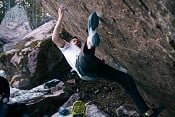
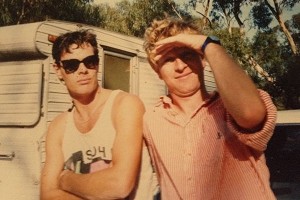
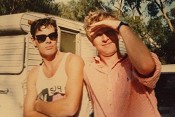
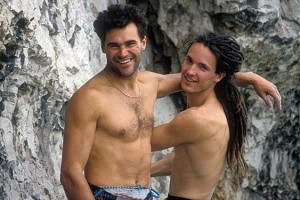
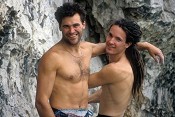








Comments